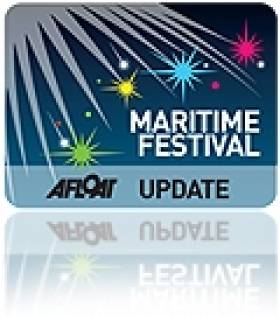Displaying items by tag: Watrerways Ireland
Coleraine Riverfest Is Ireland's Event Of The Summer
#Riverfest - Avid fans of watersports from across the UK & Ireland will descend on Coleraine on 9-10 August when the Waterways Ireland Riverfest takes place on the Lower Bann River and Christie Park.
On the water, wakeboarding, jetskiing and bare-footing demos will run throughout the day each day with competitive stand-up paddle boarding and sailing, rowing and angling all in the packed family fun programme.
Off the water, an inflatable fun area welcomes kids of all ages, alongside climbing walls, a boat and motor-home display, food and retail areas and the all-Ireland u90kg Strong Man and Strong Woman finals.
Sponsored by Waterways Ireland and supported by Coleraine Borough Council, the event runs 10.30am to 6pm on the Saturday and 12.30pm to 6pm on the Sunday and is free for all the family.
"The Waterways Ireland Riverfest in Coleraine receives our support because it engages more families, young people in waterway recreation in a spectacular and innovative fashion, leading the way with a range of events and activities you cannot experience elsewhere," said Waterways Ireland chief executive Dawn Livingstone.
"Thousands of people have enjoyed the Riverfest and have become great enthusiasts for their watersport and ambassadors for the event, the Lower Bann and Coleraine."
Rob Skelly, owner of The Edge Watersports in Coleraine and one of the event organisers, added: "The Waterways Ireland Riverfest has been a phenomenal success since we launched eight years ago. For 2014, the line-up will be bigger and better cementing its reputation as one of the best watersports events across the UK and Ireland.
"The natural waterway of the Lower River Bann provides a wonderful platform and backdrop for the magnificent displays. Once again we are delighted to be working alongside Waterways Ireland who is as ever supportive and actively promoting recreational opportunities on the inland waterways.
"Coleraine Borough Council are avid supporters of the event contributing since the events inception both financially and with some valued in-kind support, which has assisted the festival extend its land based offering to visitors on this idyllic site adjacent to the River Bann."
Mayor of Coleraine George Duddy met with the festival team by the River Bann to see for himself the wealth of entertainment planned for this year's event.
"Coleraine Borough Council has continued to support the development of this event as it attracts residents and visitors to an important location in the town," he said. "The River Bann provides the focus to this free family fun day, which is a great weekend for families of all ages, while supporting the local businesses to showcase the town for shoppers.
"I look forward to this year's event and congratulate all the teams involved in continuing to develop the Waterways Ireland Riverfest programme, as a significant attraction in the Borough's calendar of events."
For further information click on the Waterways Ireland Riverfest events page on Facebook HERE.





























































